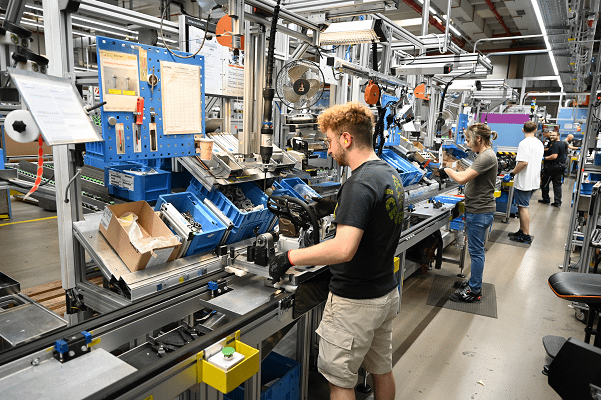The UK’s manufacturing sector saw output fall at it’s fastest rate since July 2020 according to the S&P Global/CIPS UK Manufacturing PMI survey.
The PMI survey in July had a reading of 45.3 compare to 46.5 in June, and any reading below 50 shows a decline in the manufacturing sector.
This is the joint worst output since July 2020 which marks a “worrying intensification” of the decline in the sector.
For the 10th month in a row the number employed in manufacturing fell as companies are trying to protect their profit margins.
Weaking exports in the global market has been blamed by UK manufacturers which has seen a decline in parts of the world.
Rob Dobson, director at S&P Global Market Intelligence, said, “July saw a deepening of the UK’s manufacturing downturn.
“Output fell at the quickest pace since January, as overstocked clients, rising export losses, higher interest rates and the cost-of-living crisis coalesced to create a worrying intensification of the slump in demand.
“Although manufacturers maintain a generally positive outlook for the sector, with over half still expecting output to rise over the coming year, other forward-looking indicators show the mire that industry is currently facing.
“Domestic and export demand are weakening, and backlogs of work are declining sharply, all of which likely presages further cutbacks to production, employment and purchasing in the months ahead.
“The only upside is that prices are falling in this environment of sharply deteriorating demand, with cost pressures also helped lower by further repair to supply chains.
“Supplier performance improved for the sixth successive month, while raw material prices fell for the third month in a row.
“However, while good news for inflation, lower prices are largely a symptom of malaise and hence bode ill for manufacturers’ profits, which may in turn hit investment.”


Leave a Comment